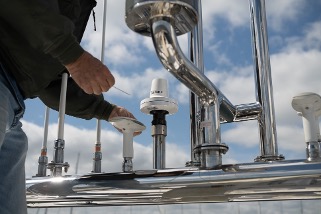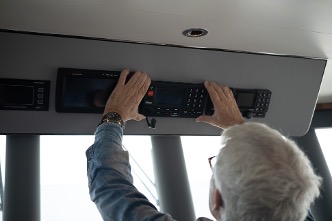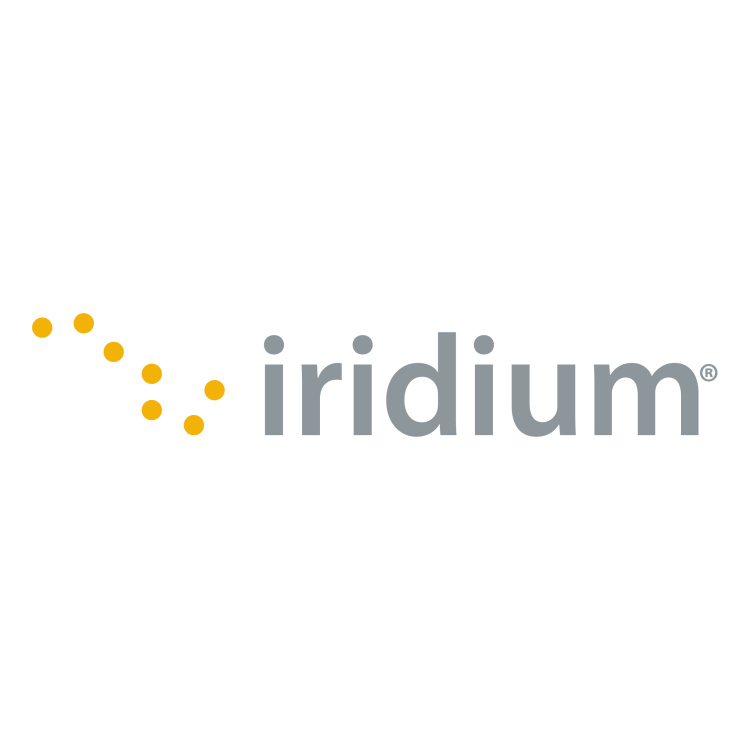For more than three decades, the International Maritime Organization (IMO) has required mariners and regulators to implement the Global Maritime Distress and Safety System (GMDSS) as the mandated framework for ship-to-shore and ship-to-ship emergency communications on Safety of Life at Sea (SOLAS) vessels, highlights Wouter Deknopper, VP & GM Maritime Line of Business, Iridium.
The longevity of this protocol has necessitated periodic updates and amendments to keep GMDSS current. The most recent changes took effect in January 2024 and are the result of more than a decade of analysis and planning to modernize emergency communications for ships at sea. These amendments represent a seismic change in maritime safety, as new options for low Earth orbit (LEO) satellite technology shatter the previous monopoly of geostationary (GEO) satellites for GMDSS communications. This has enabled mariners to embrace more advanced technology and procedural options for the GMDSS service.
GMDSS Updates Prompted by Satellite Innovation
The arrival of new performance and cost savings capabilities made possible by innovations in satellite technology

has driven these most recent amendments to the GMDSS protocol. Specifically, in late 2018, the International Mobile Satellite Organization (IMSO) positively verified the operational and technical requirements as requested by the Maritime Safety Committee (MSC) of the IMO for Iridium to provide GMDSS service.
This monumental milestone ended the decades-long GMDSS service provider monopoly held by Inmarsat and its GEO satellite network. In effect, the GMDSS updates acknowledge that satellite technology for maritime safety has evolved beyond GEO options and the inherent limitations of such networks.
These latency, downtime, and coverage shortcomings are all avoidable by leveraging a LEO network for emergency communications. LEO constellations, such as Iridium’s, consist of satellites positioned much closer to the planet, orbiting only a few hundred miles above the Earth, which reduces latency and power consumption while strengthening signal quality. LEO constellation flight paths are also highly predictable and not limited to the equator, allowing for global, more reliable and weather-resilient coverage. The unique structure of Iridium’s constellation enables satellites to converge at the poles, resulting in secure coverage and communications in remote, high-latitude regions where GEO networks are unable to reach.

Major Change in Sea Area Designations
The IMO’s endorsement of LEO L-band satellite technology for emergency communications has prompted several steps in modernization for GMDSS. Significantly, Sea Area A3 will now vary depending on the type of mobile satellite service. Traditionally, if vessels stayed within their coverage, they have been served well by GEO network GMDSS service. On the other hand, Sea Area A4, essentially the polar regions, does not experience reliable GEO satellite coverage, and dual MF/HF radio stations with Narrowband Direct Printing (NBDP) have been required for GMDSS compliance.
Under the new GMDSS changes to SOLAS, mariners have an opportunity to shed some hardware and take advantage of the global Sea Area A3 with a LEO network.
If a vessel continues to use a GEO provider for GMDSS, the above protocol remains the status quo – HF radio with Narrowband Direct Printing is still required for Sea Area A4. However, if LEO satellite coverage is used, the modernized GMDSS framework allows Sea Area A3 to become global, effectively eliminating Sea Area A4 designation with total global coverage and offloading the MF/HF radio and Narrowband Direct Printing hardware burden.
Hardware Implications and Benefits
An even more immediate and tangible impact of GMDSS updates relates to printing hardware. Inmarsat customers have historically needed NBDP capabilities. In addition to the SOLAS regulation changes, the IEC no longer requires vessels operating with Iridium® GMDSS services to carry printing equipment, and do not need to change existing hardware to remain compliant. Conversely, Inmarsat-equipped vessels need to keep such a printer connected or else purchase a new Inmarsat C terminal. Against this backdrop, mariners and fleet managers can rethink their entire approach to GMDSS technology and processes – leveraging LEO and L-band together to reap more benefits around cost, coverage and capabilities.
The eliminated MF/HF radio and NBDP hardware burden associated with Sea Area A4 for vessels leveraging LEO-based GMDSS enables fleets to acquire or maintain necessary GMDSS services and features for around a quarter of the cost of competing equipment. As for coverage, the unique architecture of Iridium’s crosslinked LEO network allows for pole-to-pole, highly weather-resilient L-band coverage with plenty of satellite diversity to reduce signal blockage.
Iridium is also the only GMDSS system with Distress Voice capability. The Distress Voice service is critical for mariners providing key information to Rescue Coordination Centers, especially given the limited time they may have during an emergency.
Conclusion
GMDSS standards continue to evolve, and the latest modernization effort recognizes the tremendous value of LEO L-band networks for SOLAS vessels to enhance their ship-to-shore and ship-to-ship emergency communications. With new LEO and L-band services now available, a modernized GMDSS framework unlocks more capabilities, coverage and cost benefits for mariners and fleet managers worldwide.
The views presented are only those of the authors and do not necessarily reflect those of SAFETY4SEA and are for information sharing and discussion purposes only.































































